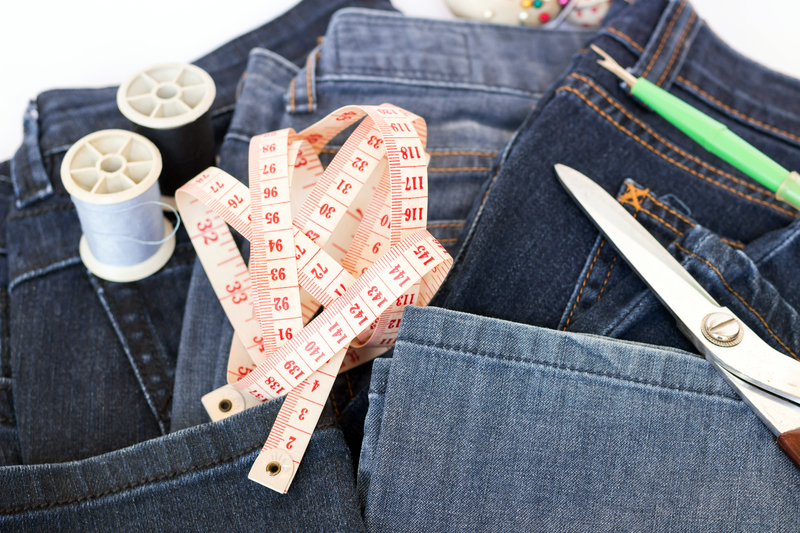Eco-Friendly Methods for Disposing of Used PPE
The COVID-19 pandemic underscored the essential role of Personal Protective Equipment (PPE) such as face masks, gloves, gowns, and face shields. However, the surge in their usage has resulted in a significant environmental threat due to improper disposal, generating tons of plastic and non-biodegradable waste. As the world strives for sustainable solutions, exploring eco-friendly methods for disposing of used PPE is vital to minimize environmental harm. This comprehensive article examines various green alternatives, innovative recycling programs, and best practices to ensure responsible disposal of PPE while protecting our ecosystem.
Why Responsible PPE Disposal Matters
The improper disposal of used PPE has led to contamination of landfills, oceans, and even urban areas. The main challenges associated with conventional PPE disposal include:
- Environmental Pollution: Most PPE items are made from plastics like polypropylene and polyethylene, which take centuries to decompose.
- Microplastic Generation: Over time, discarded PPE breaks down into microplastics, entering food chains and water bodies.
- Harm to Wildlife: Animals often mistake used PPE for food or become entangled in straps and elastic bands.
- Public Health Risks: Improperly discarded PPE can spread pathogens, posing risks to sanitation workers and the general public.
To combat these issues, adopting eco-friendly PPE disposal techniques is crucial for safeguarding health and the environment.

Common Types of PPE Waste
Main Categories of PPE Waste
- Masks (single-use & reusable)
- Gloves (nitrile, latex, vinyl)
- Gowns and aprons
- Face shields and goggles
Not all PPE is created equal in terms of recyclability or biodegradability. The method of eco-friendly disposal often depends on the material composition and contamination level of each item.
Top Eco-Friendly Methods for Disposing of Used PPE
1. PPE Recycling Programs
One of the best sustainable PPE disposal solutions is recycling. Specialized programs and recycling initiatives accept used PPE, diverting waste from landfills.
- Collection Points: Public bins dedicated to PPE disposal have emerged in hospitals, airports, offices, and malls. Ensure bins are clearly labeled for PPE only.
- Specialized Recycling Facilities: Companies like TerraCycle and Reworked offer boxes and logistical support for collecting and recycling used PPE. These items are then processed into plastic pellets used for making park benches, flooring, and outdoor furniture.
- Innovation in Material Recovery: Research institutions around the world are developing equipment to sterilize, shred, and repurpose PPE into new products, reducing overall demand for virgin plastic.
2. Waste-to-Energy Conversion
An emerging environmentally friendly way to dispose of PPE is through waste-to-energy (WTE) incineration. Although traditional burning can pollute air, modern controlled incineration in specialized facilities harnesses high temperatures to safely destroy pathogens while generating electricity.
- PPE is collected, sterilized, and incinerated in tightly regulated plants with emission controls.
- Energy recovered is supplied to local power grids, reducing fossil fuel reliance.
- Byproducts like ash are sometimes used in construction materials.
While not as ideal as reduction or recycling, WTE is a practical midway for contaminated, non-recyclable PPE.
3. Biodegradable PPE Options
A sustainable PPE disposal strategy starts at the source: using products made from biodegradable or compostable materials.
- Compostable Masks and Gloves: Several manufacturers have launched PPE made from plant-based fibers such as bamboo, corn starch, or cellulose. When disposed of correctly, these break down naturally without leaving toxic residues.
- Community Composting Initiatives: Local organizations may accept soiled biodegradable PPE in green waste pickups or drop-offs, ensuring the material completes its life cycle sustainably.
*Note: Only dispose of biodegradable PPE in commercial composting or facilities capable of handling medical waste, as home composting may not always generate enough heat to destroy pathogens.*
4. Reusable PPE Products
Minimizing single-use PPE is perhaps the most effective eco-friendly PPE waste management measure. Here's how you can help:
- Opt for certified washable masks, gowns, and gloves.
- Follow stringent sanitation protocols for reuse, ensuring items are not cross-contaminated.
- Encourage workplaces, schools, and public entities to switch to reusable PPE wherever possible.
This method drastically cuts down the overall waste generated and is often more economical in the long run.
5. Upcycling and Artisanal Repurposing
Creative minds are finding ways to upcycle used PPE. Artisans and organizations are converting disinfected masks and face shields into:
- Road-building materials (by mixing shredded masks with asphalt)
- Decorative items, sculptures, and art installations raising awareness about plastic pollution
- New durable products, like reusable shopping bags
Such projects not only divert waste from landfills but also promote environmental consciousness.
6. Safe and Segregated Disposal Methods
When no advanced recycling or composting is available, responsible disposal practices must still be followed to minimize harm:
- Segregate PPE from regular household waste. This reduces contamination and makes future recycling efforts more feasible.
- Seal used PPE in a biodegradable bag before disposal.
- Clearly mark the waste as "PPE" or "potentially infectious" for sanitation workers' safety.
Guidelines for Eco-Friendly PPE Disposal
For both individuals and organizations, following these best practices ensures your disposal of used PPE is as green as possible:
- Consult Your Local Waste Authority: Municipalities have varying rules about PPE collection, recycling, and composting. Always check local guidelines before discarding PPE.
- Do Not Flush PPE: Flushing gloves, masks, or wipes clogs drains and pollutes waterways. Dispose via designated channels.
- Perform Hygiene Measures: Wash hands after handling used PPE and ensure it is properly contained for collection.
For Businesses and Institutions
- Set up labeled disposal bins in visible, high-traffic areas.
- Sign up for collection with approved PPE recycling vendors.
- Educate staff and visitors with signage and workshops on proper eco-friendly PPE disposal methods.
For Home Users
- Check if your community participates in PPE recycling schemes.
- Store used PPE securely until pickup day.
- Switch to reusable or biodegradable PPE wherever suitable.
Technological Innovations Driving Sustainable PPE Disposal
Scientists, engineers, and entrepreneurs worldwide are accelerating the development of new ways to dispose of PPE sustainably. Notable advancements include:
- Microwave Disinfection: Medical facilities are piloting microwave technologies that sterilize PPE, making them safe for recycling or reuse.
- PPE-Specific Pyrolysis: Chemical recycling plants convert plastic-based PPE into fuel, reducing landfill waste and providing an alternative to petroleum.
- Automated Sorting: AI-powered robots now separate PPE waste from general refuse, boosting recycling efficiency.
- Natural Fibers: Continued research into bio-based polymers could make tomorrow's PPE both safe and compostable.
Challenges and Limitations of Eco-Friendly PPE Disposal
Despite impressive progress, obstacles remain:
- Contamination Risk: Heavily soiled PPE may not be safe to recycle or compost without adequate sterilization.
- Awareness Gap: Many users are unaware of proper eco-friendly disposal options and simply discard PPE as regular trash.
- Logistical Barriers: Collecting and transporting used PPE to specialized facilities can be expensive and complex.
- Lack of Infrastructure: Some regions lack appropriate recycling or composting facilities for PPE.
To overcome these, governments, healthcare providers, and businesses must collaborate and invest in infrastructure, public education, and innovative research.

The Future of Green PPE Waste Management
The pandemic has accelerated the need for sustainable PPE waste disposal. Looking forward, we can expect:
- Broader adoption of fully compostable PPE materials
- Widespread implementation of hospital- and community-level PPE recycling programs
- Standardized regulations for PPE separation, sterilization, and recycling
- Greater consumer responsibility and awareness campaigns
With cross-sector collaboration, every discarded mask or glove can be repurposed, recycled, or safely decomposed, mitigating plastic pollution globally.
Key Takeaways: How to Make PPE Disposal Eco-Friendly
- Reduce: Use reusable or biodegradable PPE whenever possible.
- Segregate: Separate used PPE from general waste to facilitate recycling or energy recovery.
- Participate: Join local PPE recycling and composting programs if available.
- Educate: Spread the word on safe and sustainable disposal practices in your community.
By embracing eco-friendly methods for disposing of used PPE, we can protect both public health and the environment, ensuring a sustainable future for our planet.
FAQs on Sustainable PPE Disposal
- Can all PPE be recycled? Not all PPE is currently recyclable, but increasing numbers of facilities are accepting select items like certain masks and face shields.
- Is burning PPE eco-friendly? Controlled waste-to-energy incineration is preferable to open burning, which is highly polluting.
- Are biodegradable masks effective? Certified biodegradable masks offer similar filtration and protection as traditional types, but only if disposed of correctly.
- How can households contribute? Prioritize reuse, check local recycling schemes, and always segregate PPE from household waste.
For a greener tomorrow, let's make every effort to dispose of PPE responsibly, and support innovative solutions for a cleaner, healthier planet!
